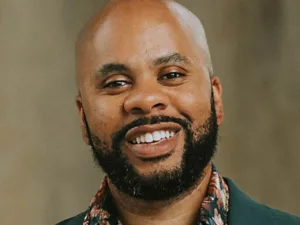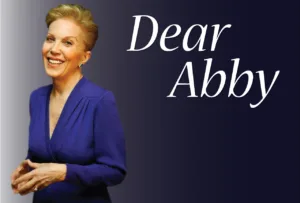Key Points:
- A wife of 19 years, who has always kept her finances separate from her husband, is facing a difficult financial demand.
- After she began receiving Social Security, her retired husband insisted she contribute a larger portion of her income to their joint household account.
- The wife feels this is unfair, as she already provides his health insurance, performs most household chores, and does not expect to inherit from his substantial personal funds.
- Columnist Dear Abby advised the woman to consult her own financial adviser and to get clarity on her husband’s estate plans, labeling their marriage more of a “business relationship.”
A 19-Year Marriage Faces a Financial Standoff
In a compelling letter to the advice columnist Dear Abby, a woman signing as “Working Gal in Washington” has detailed a significant financial conflict that has emerged after nearly two decades of marriage. The dilemma highlights the complex financial arrangements many couples navigate, especially in second marriages, and the critical importance of clear communication about future planning.
The woman has been married to her second husband, “Jack,” for 19 years. From the outset, their financial lives have been distinctly separate. While they share a joint household account to which they contribute equally, their personal funds and assets have never been commingled. Jack, who was already retired when they met, manages numerous CDs and personal funds. “Working Gal” has maintained her career, covered Jack under her health insurance plans through his various medical issues, and has never asked him for money.
The Social Security Sticking Point
The long-standing financial equilibrium was recently disrupted when the wife began receiving her Social Security benefits. Viewing this income as a crucial part of her personal retirement savings—especially since she doesn’t anticipate inheriting from Jack—she has been diligently banking the money. She wrote, “I don’t anticipate receiving any of Jack’s money. Maybe I will, but I need to be proactive on my own behalf.”
However, Jack’s perspective is starkly different. Upon seeing her income increase, he has begun pressuring her to contribute a larger share to the household account. This demand has struck the wife as deeply unfair, not just because of their financial history, but also due to the division of labor in their home.
An Unfair and Unequal Burden
The wife’s sense of injustice is compounded by her contributions outside of finances. As Jack’s physical abilities and strength have waned due to his health issues, she has taken on the majority of the household and yard chores. Her role has evolved into that of a primary caregiver and homemaker in addition to being a full-time employee and financial contributor. His request for more of her retirement savings, while he controls his own significant assets, has created a major rift.
Dear Abby’s Incisive Advice: Protect Your Future
In her response, Dear Abby did not mince words, offering advice that was both pragmatic and pointed. She began by observing that the marriage, as described, sounds “more like a business relationship than a partnership.” This validation sets the stage for a course of action based on financial self-preservation rather than marital assumption.
Seek Professional Counsel and Clarity
Abby’s primary recommendation was for “Working Gal” to seek independent advice before making any decisions. “You should discuss this with YOUR financial adviser before putting any of your retirement money into the household account,” Abby wrote. This emphasizes the need to protect her own future, which she has rightly been proactive about.
Furthermore, Abby addressed the elephant in the room: the husband’s estate. The wife’s financial planning is based on the assumption that she will be left with nothing. Abby challenged this uncertainty directly, stating, “If you are included in your husband’s estate plans, you should know what they are.” The lack of transparency after 19 years of marriage is a critical issue that needs to be resolved. This situation serves as a powerful reminder for all couples to have open conversations about wills, estate plans, and long-term financial security to avoid devastating surprises and conflicts down the road.
Image Referance: https://www.oregonlive.com/entertainment/2025/09/dear-abby-i-wont-see-any-money-when-my-husband-dies-why-is-hes-asking-about-my-retirement-earnings.html




